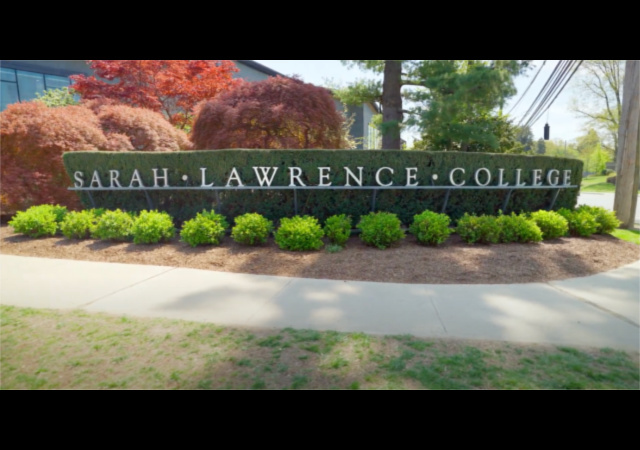Cancel Culture on Campus Expands Beyond Social Media
“While protesting a professor in the public sphere is one thing, directly targeting and approaching students through multiple channels raises the stakes, significantly increasing the intimidation for those who refuse to fall in line.”

Samuel Abrams, a politics professor at Sarah Lawrence College, detailed how groups at the school canceled him…but not through social media.
The groups directly messaged people:
I encountered this personally during the most recent course interview week at Sarah Lawrence College, during which I learned that several groups—like the Sarah Lawrence Socialist Coalition and the Sarah Lawrence Review—decided that because I support Israel’s right to exist and to defend itself, my lectures will be corrupted and therefore should be boycotted.
During interview week, professors hold Zoom sessions to discuss their course plans and engage with prospective students—a course-shopping practice that started during the pandemic. This year, several leftist students, intent on canceling me and boycotting my courses—I’m teaching classes on Polarization and Presidential Leadership—resorted to privately messaging many of the prospective students in my Zoom room. These factually inaccurate and deliberately provocative messages went unnoticed by me during the session, as I was focused on sharing syllabi and other course-related information. It wasn’t until after the session that one of the students who received a message showed it to me, and I became aware of the situation. The next day, my classes, which are typically oversubscribed with waitlists, were not full—a stark contrast, especially during an election year. The message—posted below—which falsely stated that I tweeted a comment conflating “diversity, equity, and inclusion” (DEI) advocates with Nazis, read:
Cancel culture, as we know it, mostly occurs through social media, which anyone with an internet connection can view. While that’s bad enough, this tactic of directly messaging students is a chilling evolution of cancel culture that threatens speech, expression, learning, and open inquiry.
The culture of vocal, organized, and illiberal forces is now driving students away from courses these groups find objectionable. Unlike larger, more diffuse schools like Pace University or New York University, smaller residential schools like Sarah Lawrence College—where everyone knows everyone and reputations are critical—face amplified risks. When students are directly messaged about a boycott, it clearly signals that enrolling in my class could be risky. Such a culture is the antithesis of a true collegiate education. It is nearly impossible to stand against a mob that has declared someone persona non grata. While protesting a professor in the public sphere is one thing, directly targeting and approaching students through multiple channels raises the stakes, significantly increasing the intimidation for those who refuse to fall in line.
Donations tax deductible
to the full extent allowed by law.









Comments
assault IMHO by any other name is still assault and should be considered what it is: a criminal offense
when faced with a life-threatening situation a person whould be able to take the appropriate measures without fear of government retaliation/recrimination
Huh?! No one’s been assaulted here. Messages of which the target wasn’t even aware until someone alerted him to them, are by definition not assault, not a criminal offense, and do not create a life-threatening situation.
I’m not a lawyer, but “When students are directly messaged about a boycott, it clearly signals that enrolling in my class could be risky. ”
Should you be the originator of this type of message, I would have to assume that you intend to employ force to insure that I am at risk for enrolling, which to my simple mind, means that you intend to physically damage me: therefore I must (be able to) protect myself and take whatever actions are necessary.
This is not under the Laws of NYS (many of which are,to be kind, truly demented) but the “Law of the Jungle” to which many parts of NYC have descended.
“Each new generation born is in effect an invasion of civilization by little barbarians, who must be civilized before it is too late.”
Thomas Sowell (1986)
A Conflict of Visions: Ideological Origins of Political Struggles
Why is it so difficult for professors to be anti-fragile?
Why can’t they just say something general like we all have our own opinions. I try not to push my opinions on students. But I encourage students to think for themselves and believe that we can all learn from each other respectfully. Write something like that in the upper corner of the white board, and never erase it.
I am assuming its not a required course, and the students can drop a course without penalty within the first month if they feel they signed up for the wrong class.
So it seems that students at Sarah Lawrence were intimidated from signing up for classes from this prof simply by receiving ridiculous texts from other students. I mean, what are the chances there is a prof there that thinks DEI admins are Nazis, and that ‘s not on the front page of the newspaper??? Students reading this malicious stuff had to know it was a lie. Poor little snowflakes!!! What to do? Fate sometimes places us in tough situations. And we have no choice but to stand on your own two feet and develop a backbone. You’re either are the type of person who can be intimidated by lying texts or you’re not. Whichever you choose, welcome to the rest of your life.
And yet I bet they all have a “Hate has no place here” sign in their yard